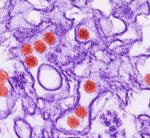

Man having marital quarrel. (Source: File image)
Nearly 20% of young adults and middle-aged men in the national capital have consulted a doctor with concerns of sexual dysfunction including reduced drive, frequency or satisfaction issues, a survey has shown. The survey found that it was because of poor lifestyle habits caused by unhealthy food, obesity, stress, and smoking, that does not only lead to an increase in metabolic diseases but also a high incidence of short and long-term sexual dysfunction.
“Unhealthy lifestyle habits have been a primary cause of the growing burden of metabolic and lifestyle diseases in the country,” Sujeet Jha, Director (Endocrinology, Diabetes, and Obesity) at Max Super Speciality Hospital, Saket, said in a statement on Monday.
“Clinical diagnosis among 21-45-year-old has revealed that their lifestyle habits are affecting their ability to have healthy sexual relations, with nearly 20% men consulting a doctor with such concerns,” Jha added.
The survey also showed that over 48% males perceive unhealthy eating habits such as eating unhealthy food, minimal exercise, and bad sleeping habits as well as indulgence in activities such as smoking to be the leading cause of reduced sexual drive.
Further, stress and sleep deprivation to have affected sexual well-being. While more than 35% men reported that feeling stressed adversely had an impact on their sexual drive and frequency, lack of sleep reduced sexual drive in 48% men. The study also found that smoking, which has a debilitating effect on health, impacts sexual drive and frequency.
Only 19% of heavy smokers (21-40 cigarettes a day) were found to have a very strong sex drive as compared to 50% non-smokers.
The survey is an analysis of the impact of various lifestyle choices and habits on the sexual activity of more than 800 adults aged 21-45 years of age, including employed professionals, housewives and students from Delhi and NCR region.
[“Source-indianexpress”]



